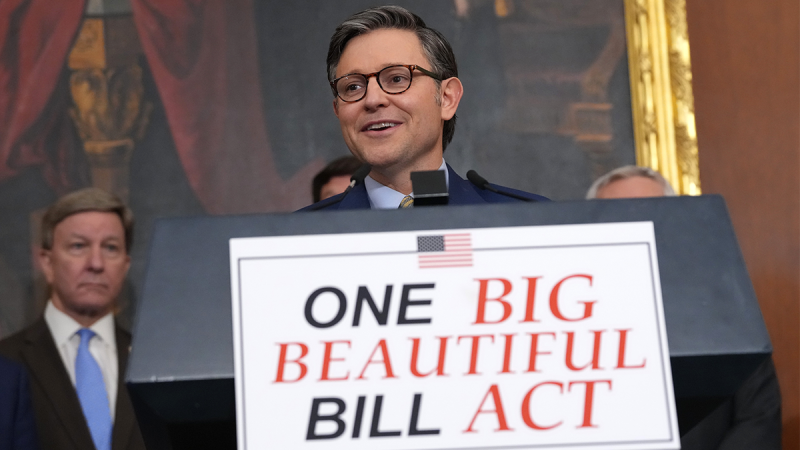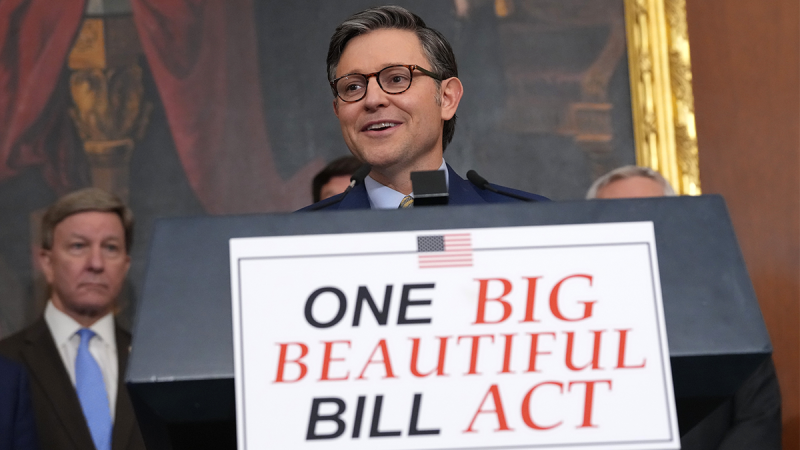Before President Donald Trump’s dramatic reveal of the ‘Golden Dome’ missile defense project on Tuesday, the proposal wasn’t even on the radar of many lawmakers on Capitol Hill.
Several senators told Fox News Digital they had received no briefing on the initiative’s costs – and some hadn’t heard of it at all.
‘I don’t support blank checks. I haven’t seen the cost figures,’ Sen. John Kennedy, R-La., told Fox News Digital.
Two senior members of the Senate Appropriations Defense Subcommittee, one Republican and one Democrat, asked, ‘what’s Golden Dome?’ in response to questions about the project Trump commissioned in January.
Trump’s sweeping plan – pitched as an American version of Israel’s Iron Dome – carries an ambitious price tag and timeline. He’s floated a $125 billion estimated cost and says it could be built in three years, by the end of his term. A government funding package moving through Congress, dubbed the One Big Beautiful Bill Act, includes $25 billion to jumpstart the project.
But defense experts and even some Republican allies anticipate the cost to be much higher.
‘This is not going to be a $25 billion or $35 billion project. It will likely cost in the trillions if and when Golden Dome is completed,’ said Sen. Tim Sheehy, R-Mont., who announced plans to form a Golden Dome Caucus during a recent Washington Times defense industry event earlier this month.
Sheehy warned that simply scaling up Israel’s Iron Dome to protect the U.S. is ‘a fundamentally different technological proposition.’
‘The challenges don’t scale linearly with the size of Israel, which is the size of New Jersey,’ he added.
The nonpartisan Congressional Budget Office (CBO) has estimated the project could cost around $500 billion – though some believe even that figure is likely too low.
CBO estimated that the space-based interceptors portion of the dome could cost at least $161 billion but up to $542 billion. But it didn’t account for any ground-based interceptors in that cost.
‘I’ve been 34 years in this business, and I’ve never seen an early estimate that was too high,’ said Space Force chief of space operations Gen. Chance Saltzman. ‘We don’t always understand the full level of complexity until you’re actually in execution, doing the detailed planning.’
Some Republican lawmakers suggest the potential benefits outweigh the massive spending required.
‘It might very well prevent a war,’ Sen. Mike Rounds, R-N.D., said. ‘When we talk about spending billions on defense, that is small compared to one single major war – not only in trillions of dollars, but in bloodshed.’
Once a missile is launched toward the U.S. homeland, the Golden Dome system aims to detect it, and orbital systems would aim to hit the missile during its ‘boost’ phase, either with a laser or a kinetic interceptor. Otherwise, ground-based systems could deploy to knock it off its path.
Others noted competing defense priorities.
‘That’s gonna be a long, drawn-out process, and it’s gonna cost a lot of money,’ said Sen. Tommy Tuberville, R-Ala. ‘Right now, we’re redoing our missile silos… we’re transitioning to different types of warfare. If we’re gonna do [Golden Dome], we do it the right way.’
Supporters of the plan argue that technological advances have dramatically lowered the cost of missile defense, enough to potentially flip decades-old strategic assumptions.
Chuck DeVore, a defense expert at the Texas Public Policy Foundation and former Reagan administration official, said the old logic – that it’s always cheaper to build offensive missiles than defenses – may no longer apply.
‘That calculation is changing now,’ DeVore said. ‘With low-cost orbit launches and inexpensive electronics, it may actually be less expensive to defend against nuclear missiles than to build them. If that’s the case, we’re at a truly revolutionary inflection point.’
DeVore also warned that traditionalists in the defense establishment may push back.
‘You’re going to see people defending the status quo,’ he said. ‘They’ll say we need that money for more conventional defense – more divisions, more jet fighters, maybe another aircraft carrier.’
Still, DeVore argued that a homeland missile defense system is overdue.
‘The ability to truly defend the homeland and save American lives is better than mutual assured destruction – especially in an age of nuclear proliferation where we can’t always be sure where the threat is coming from.’
Sen. Markwayne Mullin, R-Okla., agreed on the project’s importance, even as he said he hadn’t been briefed on the cost and needs of the project.
‘I think it’s the most important thing we could do to keep our homeland safe.’



